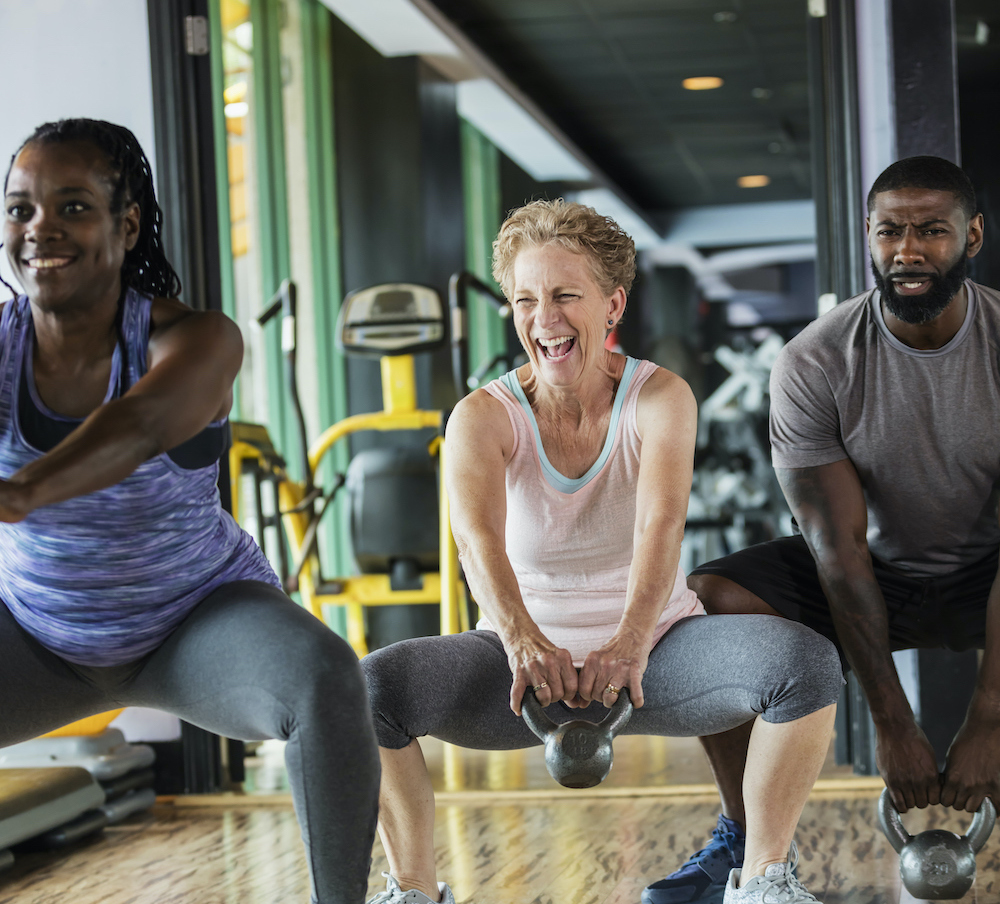Physical exercise for your mental health

Being physically active is good for both your mental health and physical wellbeing.
Exercise increases your sense of wellbeing and has some direct stress-busting benefits, as it increases the production of your brain’s feel-good neurotransmitters, endorphins. Studies also show we burn up stress hormones, like cortisol and adrenaline, when we exercise; another reason we feel better after being physically active.
It’s also an excellent coping strategy; focusing the brain away from worry and acting as a distraction from everyday stresses. At this difficult time, being physically active and mindful is going to be a fantastic copying mechanism as we adjust to life with Covid-19.
So how can we recognise when we are stressed and what can we do to manage it better?
Key indicators of stress can include:
- Being irritable
- Feeling overwhelmed and anxious
- Trouble sleeping or being tired all the time
- Eating more or less than normal
- Drinking alcohol more than normal
- Avoiding situations
- Having difficulty concentrating or racing thoughts
Be more active:
Go for a walk, a run or participate in some of the fantastic online and live-streamed classes from Trafford Leisure. Keeping active throughout the day will help your body to rest at night, helping you get a better night’s sleep.
Allow yourself some positivity:
Take time to think about the good things in your life. Each day, consider what went well and try to list a few things you are grateful for.
Be Mindful:
Simple mindfulness practices will help you rewire negative biases you may have, as well as developing your ability to laugh more, reducing tensions and stresses along the way. Mindfulness is the basic human ability to be fully present, aware of where we are and what we’re doing, and can be practised whilst seated, walking or standing. Mindfulness involves paying attention to our thoughts and emotions in a way that increases our ability to manage a situation. Courses and apps sharing mindful tips can be found online. https://headspace.com
Talk to someone and reconnect:
Research shows that reaching out to others reduces our stress levels. Trusted friends, family and colleagues, or contacting a helpline, can help us when we are struggling. We often leave friendships too long without communication, and this can leave us feeling isolated and disconnected from the world. Today, although we can’t physically meet our friends, there are many ways to keep us a connected. Write a letter, send an email or text message, make a phone call. There are also many other communication apps such as Houseparty and FaceTime.
Plan ahead:
If you are feeling overwhelmed by working from home or trying to home school the children, create a simple to-do list. Try to prepare in advance as much as possible, such as meal plans and key assignments. Tick off tasks as you complete. But be realistic, and don’t set unrealistic goals. You are doing your best and that is enough.
Look forward:
It’s important to have things to look forward to, as this will help you stay optimistic even if things are bleak now. What are you most looking forward to doing post lockdown? Where would you most like to visit? Who can’t you wait to see again? This isn’t forever.
Follow Trafford Leisure on Facebook. We are doing live classes every day for all abilities. Interact with the instructor and fellow people taking part in the exercise. We at Trafford Leisure are trying to keep you moving, not just to keep you physically active, but to help you mentally too. We want to get the endorphins flowing through your body; we want to help you de-stress, and we want to help you to interact with others until our facilities are open again.
Exercise goals during the Covid-19 Pandemic:
Covid-19 means a lot of people’s personal goals have had to change or be put on hold. This is part of life now; we may be on a lockdown for weeks or even months yet, so alter your goals, build in a maintenance phase, keep it simple and be realistic.
Don’t beat yourself up if you can’t keep up with what you were doing before, but do take advantage of the many health and mood-boosting benefits moving more has to offer.
Space restrictions at home and a lack of equipment can make physical activity tougher too, so adapt your routine and goal. Do what you can, and that’s enough. It’s important that you are kind to yourself during this pandemic and understand that you are doing the best with what you have.
Set yourself sensible short term and long term goals, and try to make progress each day towards these goals. There will be bumps in the road – but get back on track, this will help you make sustainable and positive changes to your locked down life.
- Get outdoors: Walking, cycling or jogging can help you get some much-needed fresh air while staying safely away from others. Breathe deeply and enjoy.
- Take part in our online and streamed classes. There are many types of classes available, suitable for all abilities. How many steps can you do in a day? Do you have a tracking device? You’ll be surprised how many steps housework, gardening or playing with the kids can build
- Exercise with family: Exercise is an excellent opportunity for family fun. Bike rides, dance parties, living-room yoga sessions or backyard soccer games. .
- Tackle calorie-burning chores: Mowing the lawn, working in the garden, washing the car, cleaning out the garage, washing floors etc all provide excellent opportunities for physical activity.
Use the time to walk that extra half mile or do that extra press up each day. Your goals during this pandemic are for progress not perfection.

James Jackson
North Locality
Active Living Manager / Personal Trainer